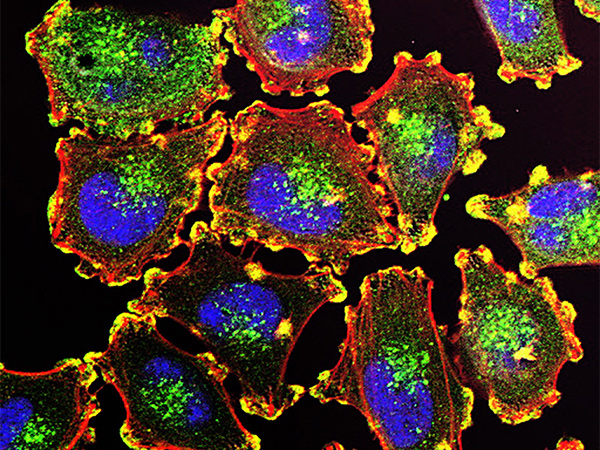A New Targeted Therapy Combination for Melanoma
The FDA has approved a third combination of targeted therapeutics for treating patients who have metastatic melanoma with certain gene mutations.

The U.S. Food and Drug Administration (FDA) recently approved the molecularly targeted therapeutics encorafenib (Braftovi) and binimetinib (Mektovi) for use in combination to treat patients with metastatic melanoma that tests positive for a BRAF V600E or BRAF V600K mutation using an FDA-approved test.
Melanoma is not the most common type of skin cancer, but it is the deadliest. In fact, more than 7,200 people in the United States are expected to die from the disease in 2019, according to federal data.
The treatment of metastatic melanoma changed dramatically in 2011. That year the FDA approved the first new treatments for the disease in 30 years: the molecularly targeted therapeutic vemurafenib (Zelboraf) and the immunotherapeutic ipilimumab (Yervoy). Since then, the agency has approved several other molecularly targeted therapeutics and immunotherapeutics, all of which have helped improve patient outcomes. For example, the percentage of patients living five or more years after a diagnosis with metastatic melanoma has risen to 22.5 percent from only 15 percent in 2010.
The growth of up to 50 percent of melanomas is driven by mutations in the BRAF gene that are known as BRAF V600 mutations. All the molecularly targeted therapeutics approved for treating metastatic melanoma target either the altered BRAF proteins generated by BRAF V600 mutations or two proteins that function further downstream in the BRAF signaling pathway, MEK1 and MEK2.
Most patients with metastatic melanoma that tests positive for a BRAF V600 mutation are treated with an FDA-approved combination of molecularly targeted therapeutics, one that targets the altered BRAF proteins generated by BRAF V600 mutations and one that targets MEK1 and MEK2. This is because treatment with the previously approved combinations — vemurafenib and cobimetinib (Cotellic) and dabrafenib (Tafinlar) and trametinib (Mekinist) — improves patient outcomes compared with treatment with a BRAF-targeted therapeutic alone.
Encorafenib, which targets BRAF proteins generated by BRAF V600 mutations, and binimetinib, which targets MEK1 and MEK2, are the third combination of molecularly targeted therapeutics approved by the FDA for this use.
The approval of the combination of encorafenib and binimetinib was based on results from the COLUMBUS phase III clinical trial that were published in spring 2018 in Lancet Oncology. The results showed that the median time from starting treatment to disease progression was more than double for patients who were treated with the combination of encorafenib and binimetinib than it was for those treated with vemurafenib; it was 14.9 months versus 7.3 months.
Alongside the approval of encorafenib and binimetinib, the FDA also approved a companion diagnostic called the THxID BRAF Kit to identify patients eligible for the new combination treatment, those who have metastatic melanoma with a BRAF V600E or BRAF V600K mutation.
The FDA approval was rendered on June 27, 2018.
